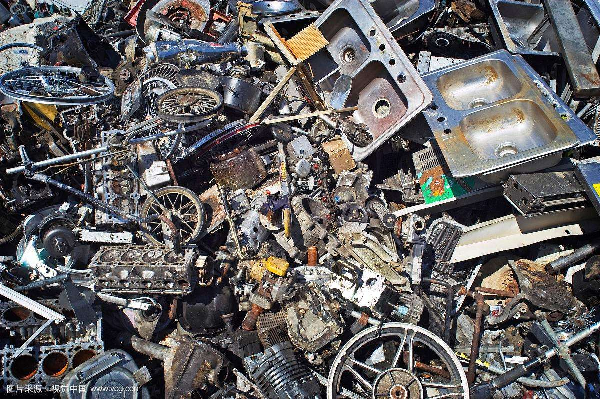The Ghana Integrated Iron and Steel Development Corporation (GIISDEC) has initiated efforts to bring order to the multibillion-cedi scrap metal industry, with plans to introduce a mandatory licensing regime targeting scrap dealers and exporters.
The new regulation is intended to curb theft, minimize environmental damage, reduce tax evasion, and protect national infrastructure, which officials say has increasingly come under threat from unregulated scrap collectors.
The yet-to-be-finalised licensing policy will require all players in the scrap value chain—including collectors, middlemen, exporters, and buyers—to register under a new oversight framework being developed by GIISDEC in collaboration with the Ministry of Local Government and the Attorney-General’s Department.
“The whole scrap industry will be regulated, and people will need a license before they can operate,” said Williams Okofu-Dateh, Chief Executive Officer of GIISDEC, in an interview with the Business & Financial Times.
He noted that unlicensed operators currently act with impunity—engaging in cross-border trade, evading taxes, and posing serious risks to public safety and the environment.
The scrap metal sector is a critical component of the domestic steel industry. With no commercially viable iron ore production to feed local steel mills, the country’s manufacturers rely almost entirely on scrap metals to produce iron rods and anvil bars—key inputs for the construction industry.
According to Okofu-Dateh, steelmakers in Ghana supply over 70 percent of the iron rods used nationally, all derived from scrap metal.
Despite its strategic importance, the industry remains largely informal and undocumented. No official data exists on the annual volume or value of scrap metal collected and processed in Ghana. This lack of visibility, GIISDEC argues, has created an unchecked market where theft, tax evasion, and hazardous practices have become commonplace.
“We don’t know who is collecting what or selling to whom. Anyone can just walk up to a facility and buy scrap metal with no questions asked,” Mr. Okofu-Dateh said. “As a result, people are stealing drain covers, electrical components, and even dismantling machinery under the guise of scrap.”
Beyond infrastructure theft, safety concerns abound. Trucks carrying scrap are often overloaded and unsecured, spilling sharp metal debris onto highways and endangering other road users. Moreover, the indiscriminate burning of wires to extract copper contributes to air pollution and poses health risks to nearby communities.
Environmental and fiscal considerations are central to the new regulatory drive. GIISDEC says the lack of proper oversight has resulted in significant tax losses to the state. Scrap dealers currently operate with minimal accountability, and many do not remit any form of tax beyond token fees paid at the municipal level. The licensing framework aims to formalise the industry and channel more revenue to government coffers through proper taxation and traceability.
“We need to know who adds value to steel materials, who collects, who processes, and where it all ends up,” the CEO noted. “Licensing will also help us monitor pricing practices, protect dealers from exploitation, and ensure compliance with health and safety standards.”
The regulation is also expected to bring structure to the export segment of the market. Currently, some dealers smuggle scrap metals out of the country through informal channels, depriving local steel plants of raw materials.
Others import scrap from neighbouring countries like Côte d’Ivoire, with little oversight or documentation. GIISDEC wants to make it mandatory for scrap sales—whether domestic or international—to be conducted through licensed entities.
“We’ve started the process,” Mr. Okofu-Dateh said. “We are doing everything possible to roll out the licensing regime in a few months.”
He noted that a multi-stakeholder committee is being formed to develop the modalities for implementation.
While no firm timeline has been disclosed, GIISDEC says the policy could become operational before the end of the year, pending completion of legal and institutional consultations. Once implemented, only licensed operators will be permitted to collect, trade, or export scrap metals.
The agency is also considering registering large-scale metal fabricators and machine part dealers who rely on scrap for their operations. This, officials argue, will enhance oversight and ensure that used parts sold on the market are traceable to legal sources.
At the core of GIISDEC’s mandate—established by an Act of Parliament in 2019—is the promotion and development of an integrated iron and steel industry in Ghana.
The corporation sees scrap metal regulation as essential to that objective, given its position as the only locally available raw material for steel production.
“The scrap business is not just a side hustle. It is the backbone of our steel industry,” Mr. Okofu-Dateh said. “But right now, we are leaving this critical sector in the hands of amateurs. That has to change.”
